Konsam Ibomcha Singh of Imphal East, Manipur, was born to National Awardee parents. His father, Konsam Tona Singh, had won the award in the Dolls and Toys category and mother, Konsam Ongbi Gambhini Devi, for the Kauna Craft. It was no surprise then that Ibomcha decided to adopt his father’s craft of the century-old, doll-making technique, for which he was awarded the Manipur State Award.
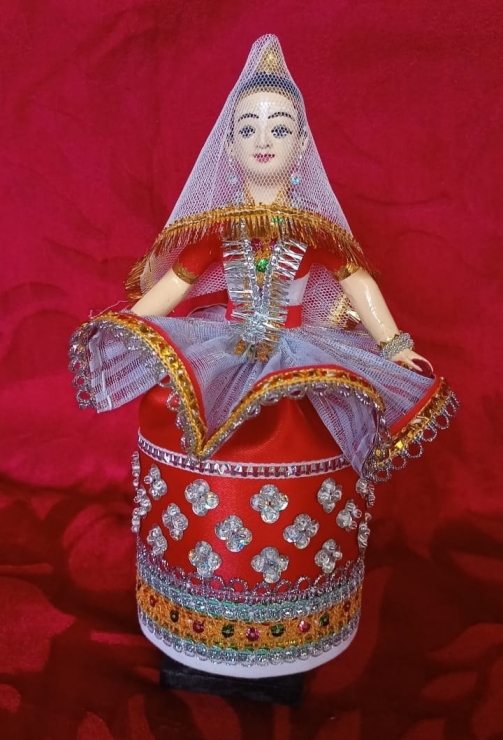
“My father tweaked the way the traditional dolls were made in the state. Today, I am the only person in our region to make this style of dolls,” explains 58-years-old Ibomcha, speaking from his home which is just 3 kilometres away from the central marketplace. One can reach his home from the marketplace by getting directions from anyone there.
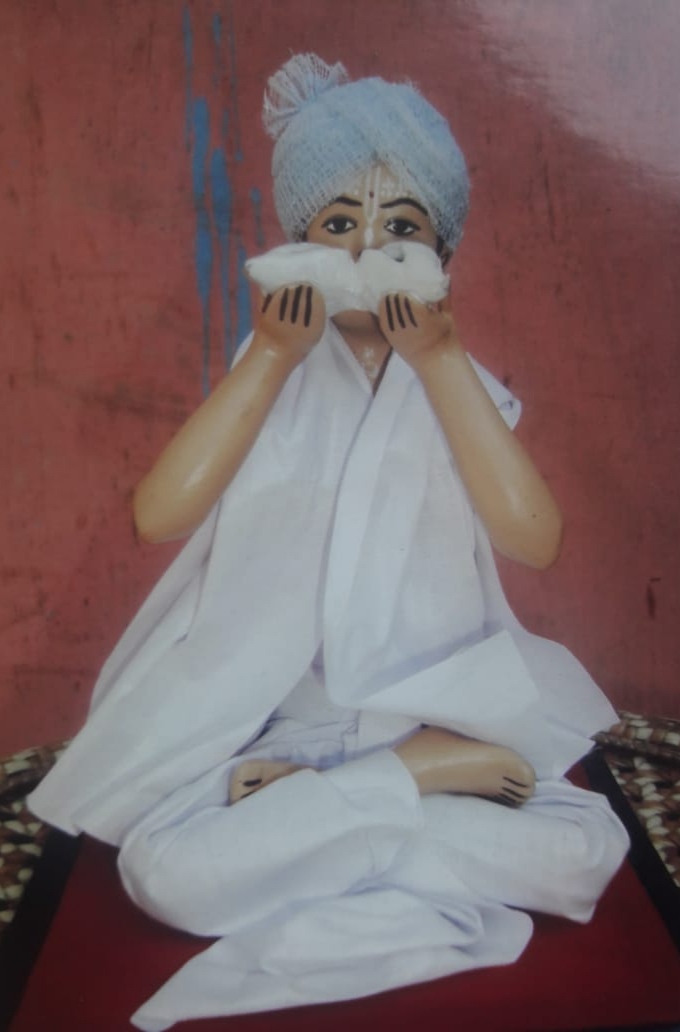
Manipur, one of the prominent states in North East, is steeped in many traditional crafts and art and culture. For some, the state represents the traditional and very graceful Manipuri dance, popularised in the rest of the country by the Gujarat-based classical danseuses quartet of Jhaveri sisters. There is also the Polo sport played on horse backs which was born in Manipur. The older form was believed to have been introduced by the Moghuls and popularised all over India by Emperor Babur.
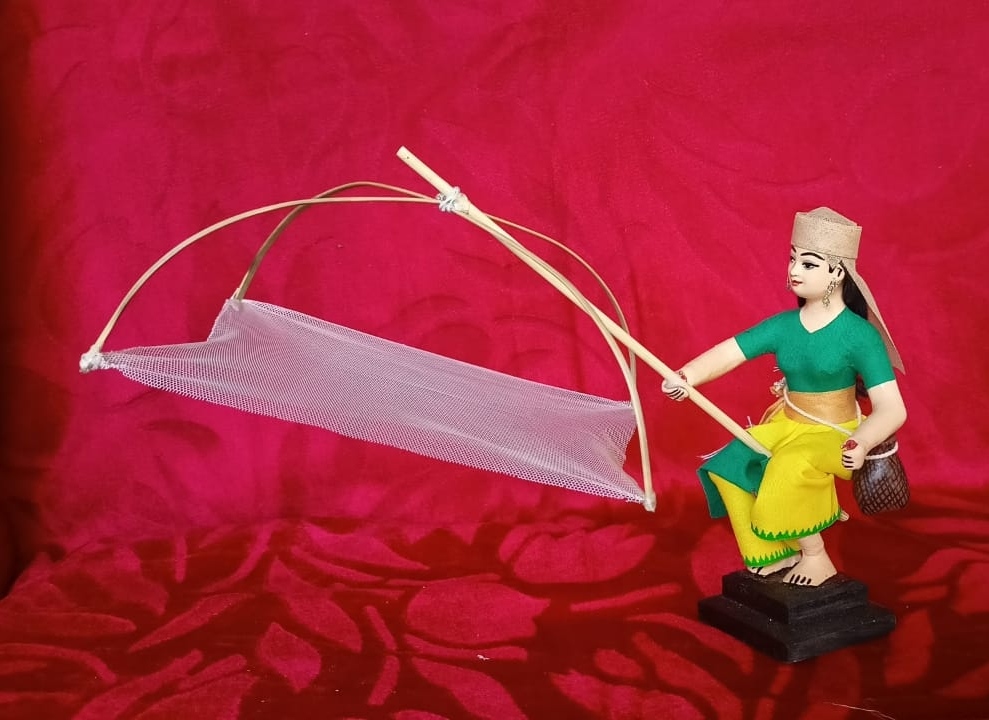
For others, Manipur represents the traditional, colourfully attired dolls. These dolls are known as Laiphadibi or Laidhibi, which are handmade from old waste cloth by older women for children. In the Manipuri language of Meitei, ‘Lai’ means God, ‘Phadi’ means old rags and ‘Bi’ is attributed to the feminine gender. The old tradition states that these dolls have feelings. So, after playing with the dolls, children are asked to keep them back in their lubak (bamboo basket), otherwise they are told that the dolls will wander, crying the entire night under the banana plant.
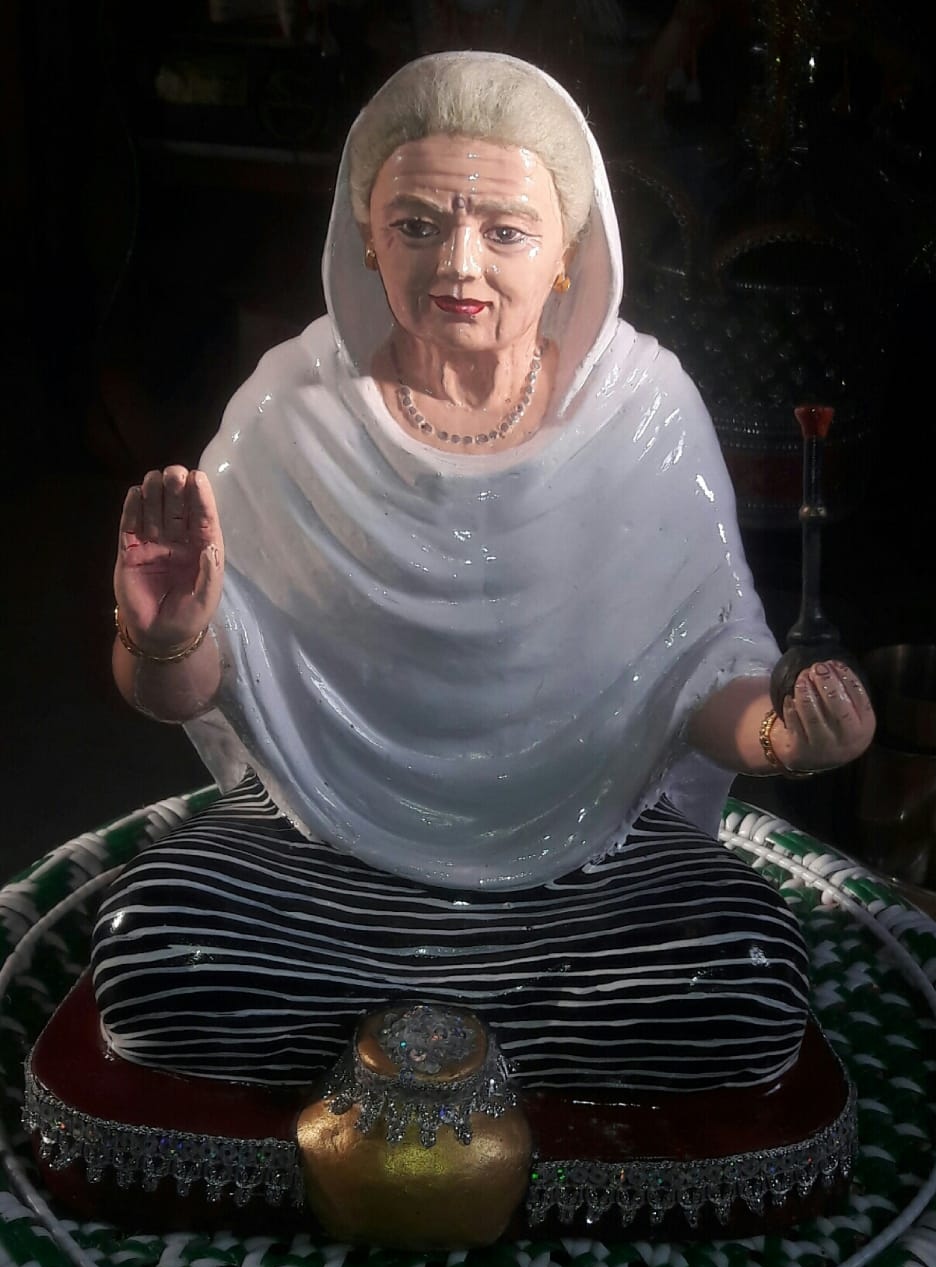
Ibomcha says, “We changed the traditional doll-making style by replacing the rags with dried grass that are formed into shape with thin wires which are then glued with cloth. This is held tight by smearing with a paste of locally sourced clay and a fine powder made of grass. They are then dried in the sun. Later, the dried dolls are smoothened to get a uniform surface. I then paint them using acrylic paints. A single colour is used to paint the body and red and black, among other colours, are used to paint the facial expressions. The technique is almost similar to the one used in making the idol of Maa Durga during the Durga Puja festival. The last step is dressing the doll.”
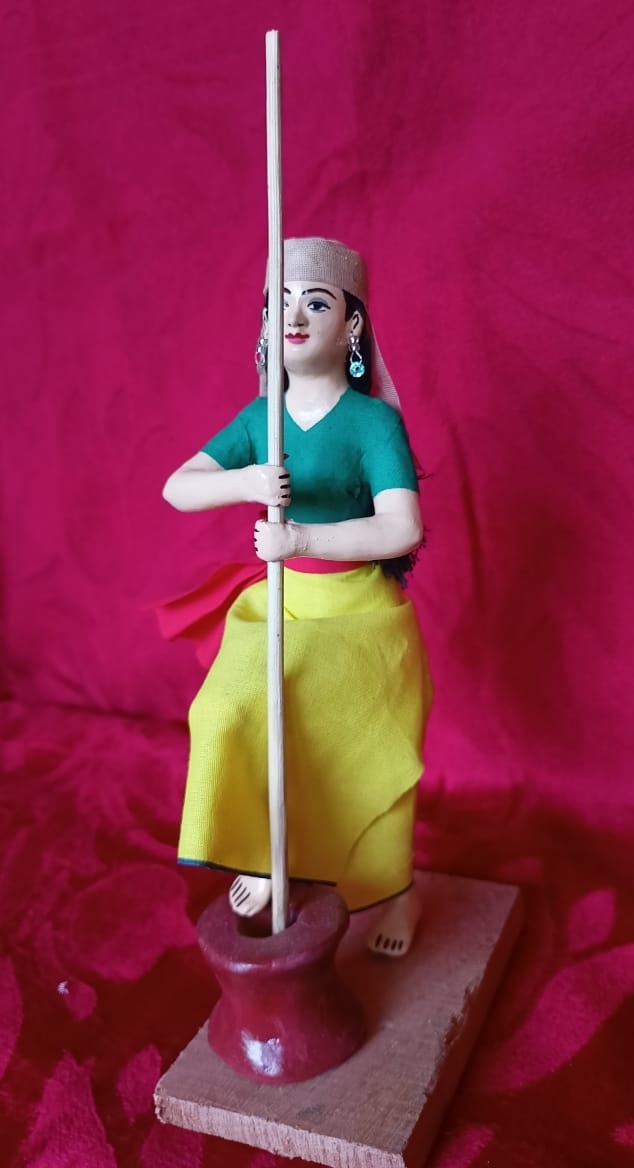
And this is when his wife, Chandrima Konsam, steps in to stitch beautiful, richly embellished attires using either bright-coloured satin fabric or the fabric with traditional, region-specific weaves, depending on the doll to be attired. For embellishment, zari ribbons and sequins are used, especially for deity idols. She makes tiny ornaments like necklaces, garlands, hair and head decorations too. Unlike Ibomcha, who learnt the art of doll making from his father, Chandrima learnt stitching dolls’ attire after she got married. Every doll is attired differently to mark its unique features. And everything is hand-stitched.
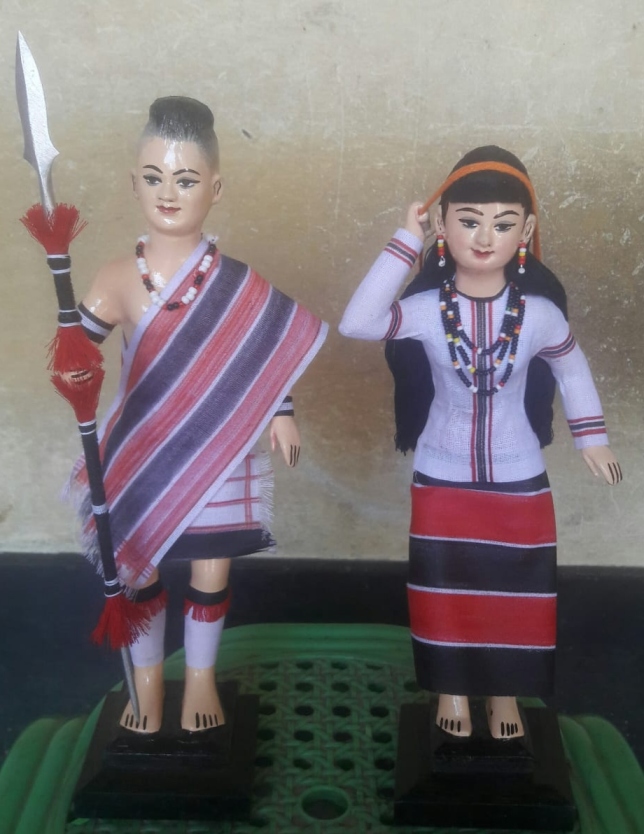
The beauty of Ibomcha’s dolls is that every item is handmade. There is no mass production or moulds used in the making of these dolls. That’s why each doll takes at least a week to make. These dolls are made in sizes of 10”, 12”, 16”, 18” and 24” tall. He also makes two or three life-size idols of Maa Durga during the Dussehra festival. For dolls, he charges upwards of Rs 1,000. One of the costliest dolls he had made of Radha-Krishna was 4 feet tall, priced at Rs 50,000.
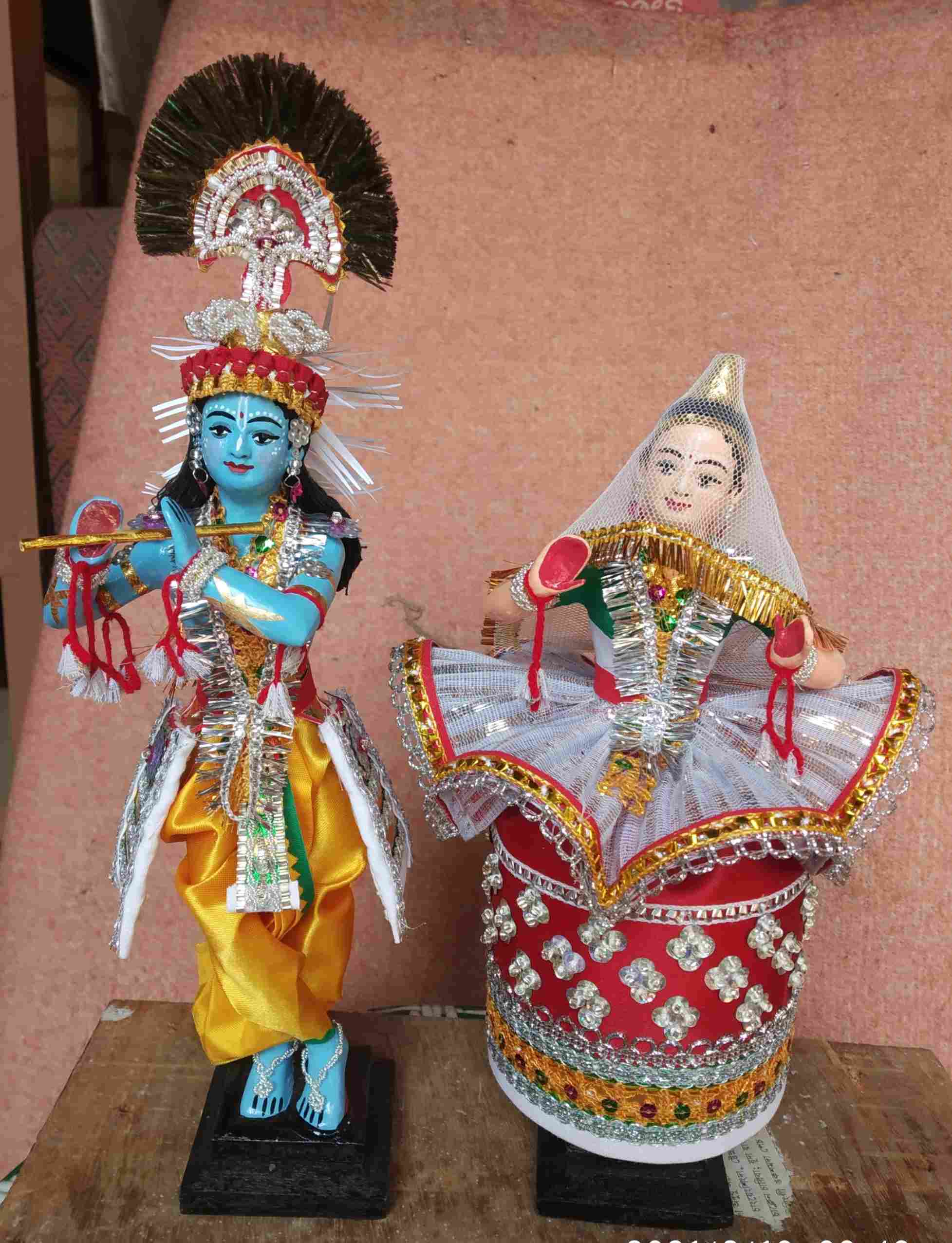
Though the most popular figures demanded are that of Radha-Krishna or individual Lord Krishna’s idols, Ibomcha has branched out to make different figurines too. In his collection one will find dolls of Manipur’s tribal soldiers, tribal dancers, women performing household duties like pounding rice, catching fish, weaving clothes, old woman praying, among others.
The father of three—a son and two daughters—Ibomcha recollects his days of hardships. He says, “There was a time when I hardly earned my keep. Each doll was sold for not more than Rs 300 and there were not many buyers. I thought of taking up some other job but in those days, even though I am a graduate, it wasn’t easy getting a job. Now, on an average I make around Rs 20,000 to Rs 30,000 a month.”
The gift of the ‘rug doll’
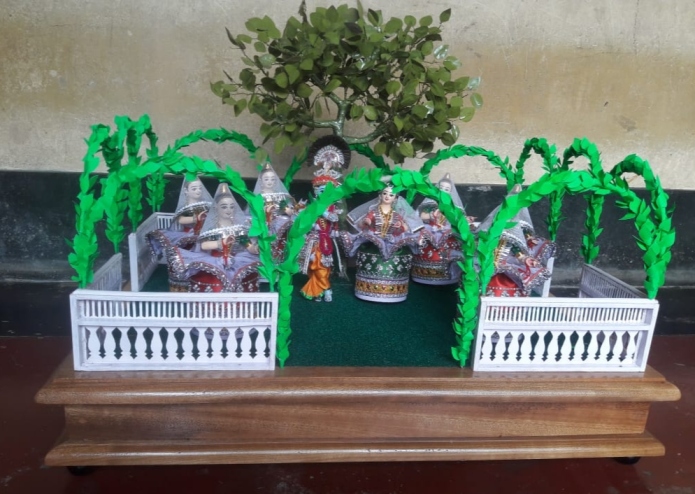
Since the late 1990s, Manipur along with other states of North East saw an economic growth with Imphal having one of the three largest airports in the region, making it easily accessible to the rest of the country. Additionally, the city was included in the Smart Cities Mission under the Ministry of Housing and Urban Affairs. This has immensely helped the handicrafts sector in the state
Ibomcha says, “Now I get bulk orders from our State Government. They present my dolls as gifts to their guests or display them in the tourists department for sale. Even banks place orders to gift their customers.”
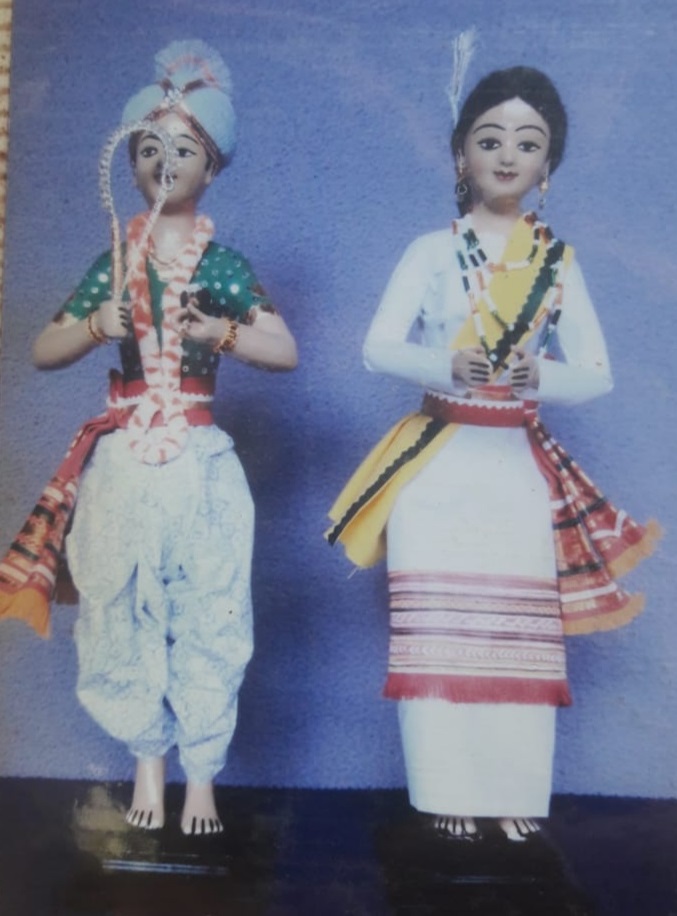
Even with this new success, he is still reluctant to allow his children to take up doll-making as a full time profession. “My elder daughter, who is studying in a local college, was interested in fine arts and wanted to take up doll making. But I was reluctant because there isn’t a lot of money in this artform,” says the doll maker.
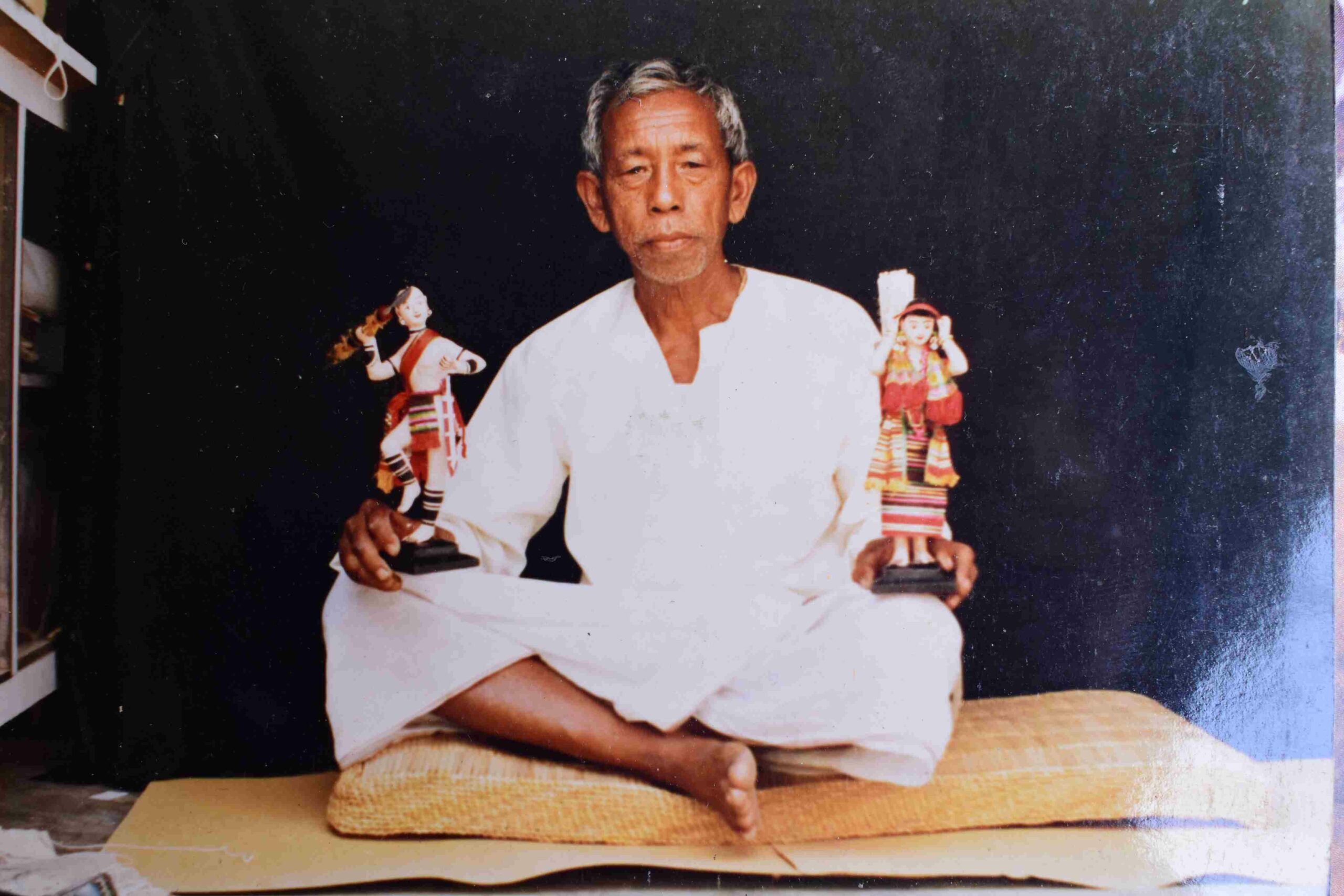
Ibomcha is reluctant to start e-sale and use boutiques to sell his creations too. “I can’t mass produce these dolls. Each item is made by me. I don’t want the quality and beauty of my dolls to diminish. But if anyone places an order on the phone, I can customise the dolls according to their demand and courier them to the customer,” he says.
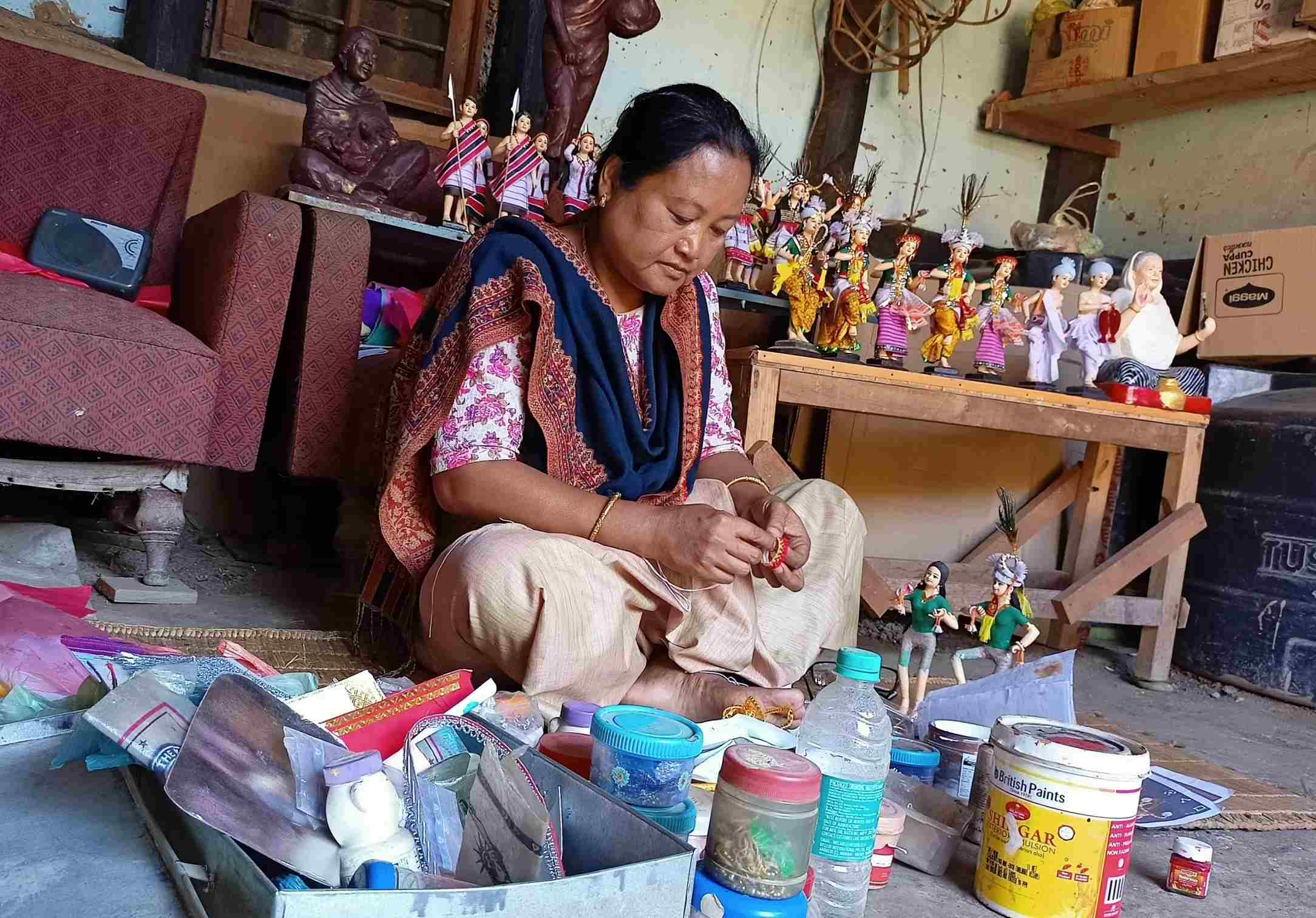
His ‘rug dolls’, as he calls them, are so popular that they get sold out at any craft exhibition he attends. He has taught this craft at many seminars and workshops he has conducted. At present, he is training three students in the typical ‘guru-shishya parampara’. He hopes they take it forward with the help of the Government or NGO assistance.
Ibomcha’s art, like many other art and crafts in India, need to be preserved and encouraged.
To reach out to Konsam Ibomcha Singh, you can call: 9856507466/7005246634.
Edited by Yoshita Rao
No comments:
Post a Comment